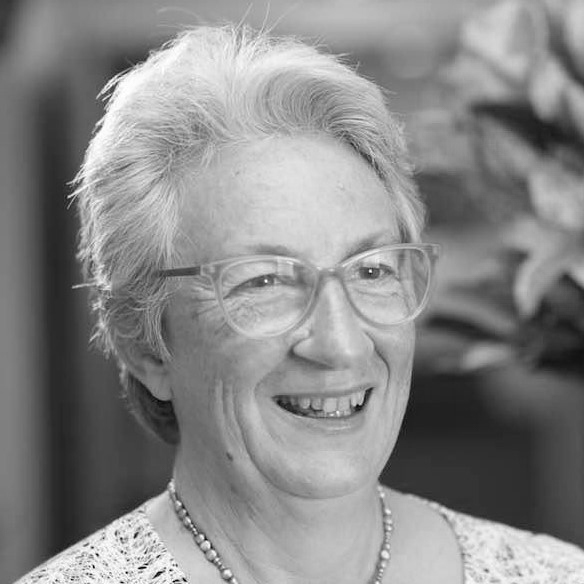It is a basic human right, enjoyed by all adults, to we make our own decisions. And there is never a more important time for our rights to equality before the law[1] and procedural fairness[2] than when our decision-making autonomy is about to be removed.
For older persons involved in guardianship and administration proceedings, there have been repeated failure to respect these basic rights. This paints a grim picture of discrimination based on age and disability.
Applications for guardianship and administration orders involving older persons are proceeding without the person being notified of the proceedings and without an opportunity to participate. This routinely occurs when the person is in hospital and an application is made by hospital staff.
Underlying this is a dangerous assumption that, because an application has been made by medical staff asserting impaired capacity, the person must, ipso facto, lack capacity, justifying the deprivation of their rights.
Mrs Marie Van Hoeff lived by herself in a rental property on the Sunshine Coast. She is in her late 80s. She had a fall at home and went into hospital. Whilst in hospital she had another fall when she was attempting to use the new walking frame. This time around she broke her ankle and developed a lung infection following ankle surgery. Her treating team began thinking that Marie would not be able to return home and asked the occupational therapist (OT) to do some functional assessments. Marie co-operated with the assessments, thinking they were for a home care package to provide extra support for her at home.
Meanwhile the treating team spoke with Marie’s son and daughter (Frank and Eva), asking them to apply for an administration order. Eva and Frank submitted applications, with OT reports, to become Marie’s administrator. The treating team and family were seeking to place Marie in a residential aged care facility. Marie did not know about the plan to remove her to aged care, the application by her children with the support of her treating team and the tribunal hearing that was being held in the hospital.
The tribunal had a hearing in a room in the hospital. Marie did not attend as she did not know about it, nor did she receive a notice of hearing. Even though everyone was seeking an accommodation decision, an application for guardianship was not made. Eva and Frank were appointed administrators. The first thing Marie knew, was when she checked her bank account online and found out she had no money and she suspected her children had stolen her money.
Marie obtained legal advice. It was explained to her that her children had her money lawfully following a tribunal hearing that she was unaware of. Marie requested a meeting with her treating team, asking them to explain how they determined that she lacked capacity to make financial decisions.
The explanation failed to consider any short-term negative impact the operation on her ankle and subsequent infection may have played in her decision-making ability. Marie’s right of appeal was explained to her, however, she was reluctant to pursue this, given her physical frailty and reliance on her children to continue to support her. Even though Marie had retained her personal decision-making power, she acceded to her children making a decision for her to permanently enter into aged care as they had revoked her lease and she then had nowhere else to go.
This disturbing scenario also appears in situations where the older person is living at home and family members/informal carers apply for guardianship and administration orders. This can be based solely on a mini mental assessment performed by a GP. Elder abuse is usually perpetrated by family members and mostly for financial gain.
Without notice of the hearing and an opportunity to be represented, the evidence of alleged incapacity is not sufficiently tested (particularly relevant when people have conditions from which they can recover wholly or partially). The least restrictive options and viable alternatives are not being put forward. Most importantly, the older person’s views and wishes are not being independently, properly, fairly and adequately presented and considered.
The impact on the person’s human rights (these can include right to life, freedom of movement, right to family, cultural rights), and the dignity afforded to everyone to include some risks in their decisions, are also not being given proper consideration or weight in restricting or replacing an older person’s right to make their own decisions.
Mr Atherton, an 87-year-old widower, moved back to Brisbane at the urging of his son Gerald. He was eager to reconnect with Gerald and his grandchildren. He was delighted by Gerald’s care and attention in the initial months following the move. However, the relationship between Mr Atherton and his son deteriorated in the months following the move. Gerald took control of Mr Atherton’s personal life and finances and become verbally abusive when Mr Atherton resisted.
Over several months Gerald strategically isolated Mr Atherton and exerted control over him. Gerald threatened Mr Atherton’s friends when they attempted contact. He set new rules for how Mr Atherton’s pets were to be cared for. He gained access to his father’s medical records, via his GP. He obtained guardianship and administration orders. This all occurred without Mr Atherton’s knowledge, even though his decision-making capacity was sound.
Mr Atherton was deeply distressed by this course of action. He felt vulnerable to losing his whole identity and his reason for living disappeared. A community service provider noticed the signs of elder abuse. He was subsequently assisted by a lawyer and social worker in Queensland Civil and Administrative Tribunal (QCAT) proceedings to obtain a declaration of capacity.
For decades, Queensland’s guardianship system[3] has recognised the right of an adult to participate to the greatest extent practicable in decisions affecting their life – with the least restrictions imposed – and to have their views and wishes taken into account.
However, as with Mrs Van Hoeff and Mr Atherton, there are many older people whose rights have been denied. An older person may have health issues, mobility limitations and care needs, but this does not diminish their right to participate in legal proceedings which affect them. At the heart of this is an ageist approach towards older persons and their right to enjoy legal capacity on an equal basis with others.
On 30 November 2020, important changes to the law underpinning Queensland’s guardianship system came into effect.[4]
The general principles and the health care principles have been updated to be more consistent with human rights.[5] There is also a greater focus on adults with impaired capacity participating in decision-making.
These legislative changes also allow for consistent capacity assessment guidelines to come into effect, to provide a minimum standard for assessing decision-making capacity. Failure to properly and fairly consider capacity, in a functional sense, for people with a mental disability or cognitive impairment has been highlighted as “plain bread discriminatory”, by Justice Bell in the Victorian Supreme Court, if a higher standard of decision making is being sought than that required of the general population.[6]
Advocates for the rights of older persons will be on the lookout for systemic change which guarantees that older persons affected by guardianship and administration proceedings will have their right to be notified of the proceedings assessed fairly, and be able to participate with appropriate representation and supports.
[1] Section 15 Human Rights Act 2019. This right is based on Articles 2, 16 and 26 of the International Covenant on Civil and Political Rights. Australia became a party to this treaty in 1980.
[2] Section 31 Human Rights Act 2019. This right is based on Article 14 of the International Covenant on Civil and Political Rights.
[3] Under the Guardianship and Administration Act 2000.
[4] Guardianship and Administration Act 2000.
[5] In particular, the United Nations Convention on the Rights of Persons with Disabilities (UNCRPD).
[6] PBU & NJE v Mental Health Review Tribunal, [2018] VSC 564,173-182.








3 Responses
This rather shrill article is wide of the mark. Exploitation of older people and their property occurs overwhelmingly through abuse of enduring powers of attorney and similar authorities. Guardianship and administration proceedings are conducted efficiently in Queensland. The meandering pleadings of the senile allowed at length, if permitted too readily and without commonsense assessment of the opinions of doctors — and appropriate weighing of the doctors’ opinions which are considered and entirely deserving of weight in a great many cases — will achieve little in preventing the exploitation of the elderly.
Hi Kevin, I’m not sure I get what you are saying!?
a) You begin arguing that most exploitation occurs under EPoAs (or similar authorities). In both examples, family of the older person are inappropriately appointed as an attorney (or similar authority). So this seems to match?!
b) Had both older person been able to speak, these decision may not have been made. So are you saying these people should not have been allowed their ‘meandering pleadings’ for the sake of QCAT efficiency, as that sounds extreme?
c) This article begins by stating it is about older peoples involvement when they are deemed to not have decision making capacity (for a matter) and having proper process. So are you arguing that proper process is, if a doctor themselves believes their assessment to be commonsense, that it should be accepted by everyone else as commonsense? In addition, are you arguing that it should be normal that we follow that idea for other types of legal issues and for people of all different ages?
3) Senile is an interesting choice of word, referring to decline in both mental and physical ability. The very old term is also commonly thought of as an insult. So are you saying that listening to older people with physical decline (in particular) won’t prevent abuse, as that seems like an extreme stance?
I am pleased that Andrew Creekston took Kevin Johnson to task because I did not have the stomach for it. Kevin Johnson smacks of a person who works in the public service and relies on “tick the box” mentality because of the lack of basic common sense to fully evaluate any situation. “Senile” , indeed, what a charming use of the word in the context of his comments regarding older persons. One is not at a loss as to see who is wide off the mark here and it most certainly is not the authors of the article which he is maligning.